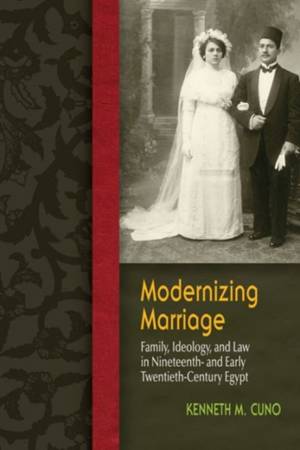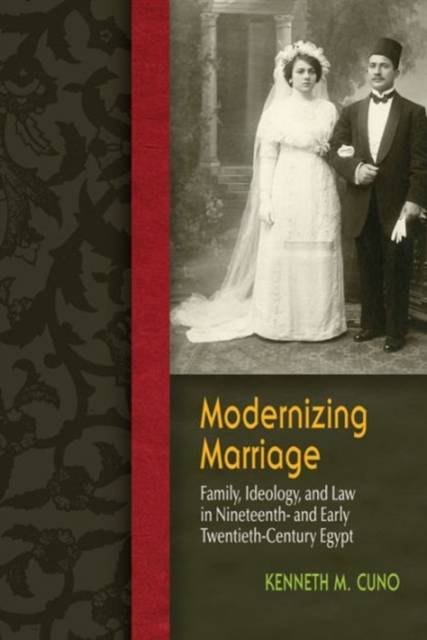
- Afhalen na 1 uur in een winkel met voorraad
- Gratis thuislevering in België vanaf € 30
- Ruim aanbod met 7 miljoen producten
- Afhalen na 1 uur in een winkel met voorraad
- Gratis thuislevering in België vanaf € 30
- Ruim aanbod met 7 miljoen producten
Zoeken
Modernizing Marriage
Family, Ideology, and Law in Nineteenth- And Early Twentieth-Century Egypt
Kenneth M Cuno
€ 67,95
+ 135 punten
Uitvoering
Omschrijving
In 1910, when Khedive Abbas II married a second wife surreptitiously, the contrast with his openly polygamous grandfather, Ismail, whose multiple wives and concubines signified his grandeur and masculinity, could not have been greater. That contrast reflected the spread of new ideals of family life that accompanied the development of Egypt's modern marriage system. Modernizing Marriage explores the evolution of marriage and marital relations, shedding new light on the social and cultural history of Egypt. Family is central to modern Egyptian history and in the ruling court did the "political work." Indeed, the modern state began as a household government in which members of the ruler's household served in the military and civil service. Cuno discusses political and sociodemographic changes that affected marriage and family life and the production of a family ideology by modernist intellectuals, who identified the family as a site crucial to social improvement, and for whom the reform and codification of Muslim family law was a principal aim. Throughout Modernizing Marriage, Cuno examines Egyptian family history in a comparative and transnational context, addressing issues of colonial modernity and colonial knowledge, Islamic law and legal reform, social history, and the history of women and gender.
Specificaties
Betrokkenen
- Auteur(s):
- Uitgeverij:
Inhoud
- Aantal bladzijden:
- 336
- Taal:
- Engels
- Reeks:
Eigenschappen
- Productcode (EAN):
- 9780815633921
- Verschijningsdatum:
- 1/04/2015
- Uitvoering:
- Hardcover
- Formaat:
- Genaaid
- Afmetingen:
- 159 mm x 236 mm
- Gewicht:
- 576 g

Alleen bij Standaard Boekhandel
+ 135 punten op je klantenkaart van Standaard Boekhandel
Beoordelingen
We publiceren alleen reviews die voldoen aan de voorwaarden voor reviews. Bekijk onze voorwaarden voor reviews.











